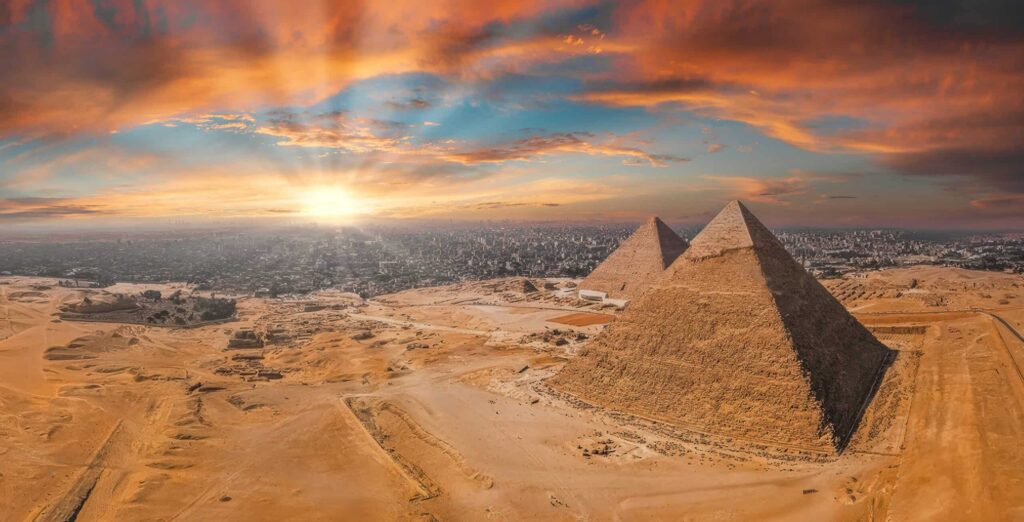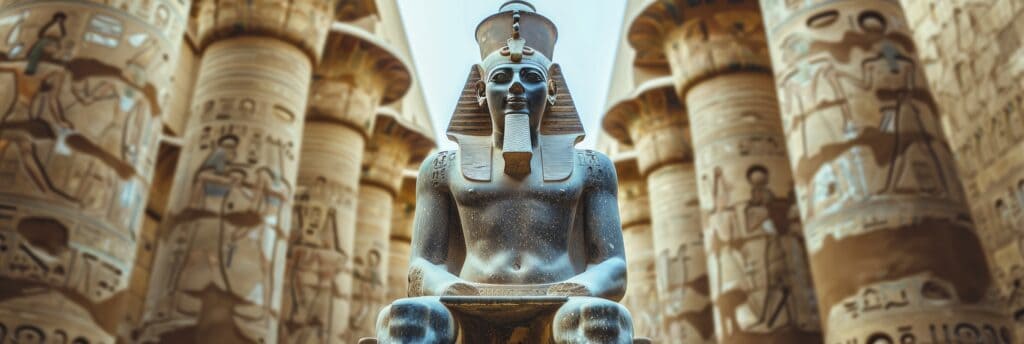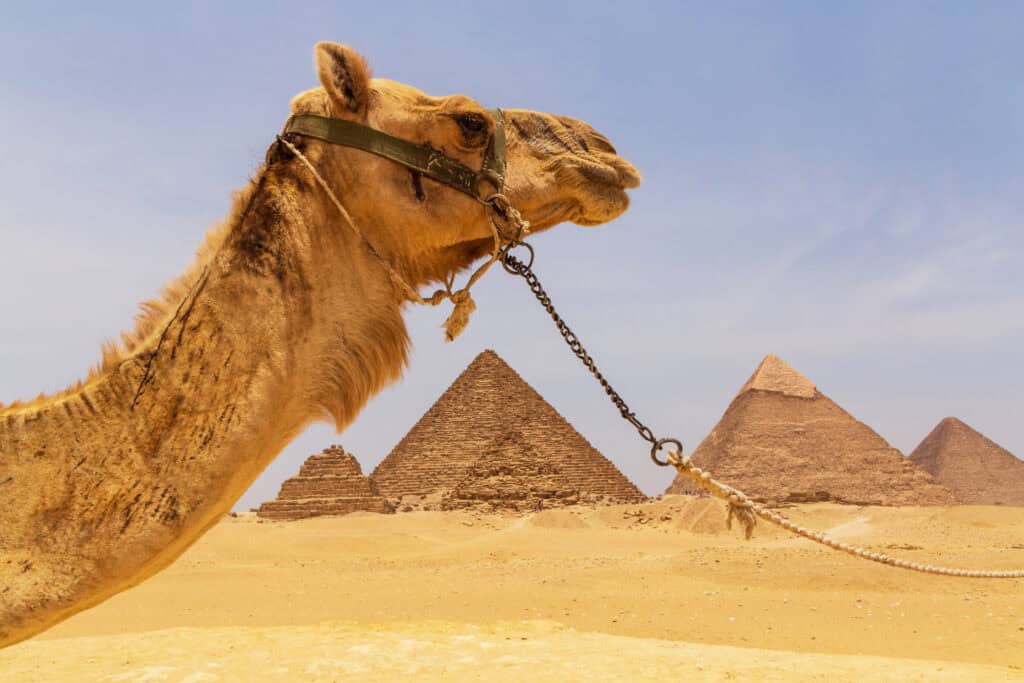Dreaming of exploring the wonders of Egypt but unsure when to go? The best time to visit Egypt can significantly impact your experience. From the iconic pyramids to the vibrant bazaars, Egypt offers a treasure trove of history and culture waiting to be discovered. But when is the optimal time to witness this ancient land in all its glory? Understanding the seasons, weather patterns, and tourist crowds can make or break your Egyptian adventure. Let’s uncover the ideal time to visit Egypt and make your journey truly unforgettable.
Key Takeaways
- Plan your visit to Egypt between October and April, the months for pleasant weather and fewer crowds.
- Consider early mornings or late afternoons to visit popular attractions like the Pyramids to avoid the heat and crowds.
- Be prepared for hot temperatures during the summer months in Egypt and stay hydrated.
- Familiarize yourself with the seasonal events and activities in Egypt to make the most of your trip.
- Pack light, breathable clothing, sunscreen, and a hat to stay comfortable during your explorations.
- Engage with locals and immerse yourself in the rich culture and history of Egypt for a memorable experience.
Understanding Egypt’s Climate
Weather Patterns
Egypt experiences hot and dry weather most of the year, with scorching summers and mild winters. The summer months, from June to August, can see temperatures soaring above 40 degrees Celsius. In contrast, winter temperatures range from 15 to 25 degrees Celsius, making it a more comfortable time to visit. Precipitation is rare in Egypt, mostly occurring in the coastal areas during the winter months.
The weather patterns in Egypt play a crucial role in shaping travelers’ experiences. The scorching heat of summer may deter some visitors who are not accustomed to high temperatures, while the milder winters offer a more pleasant environment for exploration and sightseeing.
Best Seasons
The best time to visit Egypt is during the cooler months of November to February, when temperatures are milder and more comfortable for outdoor activities. Travelers seeking beach holidays might prefer visiting during the summer months, although they should be prepared for intense heat. While winter offers pleasant weather, it is also the peak tourist season, resulting in larger crowds at popular attractions.
Visiting Egypt in the shoulder seasons of spring (March to May) or autumn (September to October) can provide a balance between favorable weather conditions and fewer tourists. However, travelers should be aware that these seasons may still experience fluctuations in temperature.
Regional Variations
Egypt’s climate varies across different regions due to its diverse landscape. Coastal areas like Alexandria enjoy milder temperatures compared to inland cities like Luxor and Aswan. The Sinai Peninsula experiences cooler temperatures at higher elevations, making it an ideal destination for hiking and adventure activities.
Travelers looking for unique weather patterns can explore regions like the Western Desert or the oases of Siwa and Bahariya. These areas offer distinct landscapes and climates not commonly associated with traditional Egyptian tourism destinations.
Month-by-Month Guide to Egypt
January to March
Egypt experiences mild winters from January to March, with temperatures ranging between 50-70°F. The weather is perfect for exploring ancient sites like the Pyramids of Giza and the Karnak Temple.
Travelers can immerse themselves in the vibrant celebrations of Coptic Christmas on January 7th and witness the fascinating Abu Simbel Sun Festival in February.
April to June
As spring transitions into summer, Egypt sees a rise in temperatures, reaching up to 90-100°F. Travelers should be prepared for the infamous Khamsin Wind, which can bring dust storms and disrupt travel plans.
During this period, visitors can witness the colorful festivities of Sham el-Nessim, a spring festival celebrated by picnicking along the Nile River.
July to September
July to September marks Egypt’s summer season, characterized by hot temperatures averaging around 95-105°F. Despite the heat, this period offers unique opportunities such as fewer crowds at popular tourist sites.
Travelers can enjoy a cruise along the Nile River or explore the stunning underwater world of the Red Sea for a refreshing escape from the scorching sun.
October to December
The fall season brings pleasant weather to Egypt with temperatures ranging from 60-80°F, making it an ideal time for outdoor activities and sightseeing. October to December is also the peak tourist season in Egypt.
To avoid crowds, consider visiting popular attractions early in the morning or late in the afternoon. Don’t miss experiencing the mesmerizing sound and light shows at iconic sites like Luxor Temple during this festive season.
Ideal Time for the Pyramids
Avoiding Crowds
When planning a visit to the pyramids, consider arriving early in the morning to beat the crowds. Opting for a sunrise or sunset tour can offer a more serene experience. Exploring lesser-known pyramids like those in Dahshur or Abusir provides a tranquil alternative to the bustling Giza Plateau. To avoid peak tourist seasons, plan your trip between October and April when crowds are thinner.
Weather Conditions
Egypt experiences scorching summers, with temperatures exceeding 100°F, making sightseeing uncomfortable. The best time to visit the pyramids is during the winter months from November to February when temperatures are milder, ranging from 60-80°F. Mild weather ensures an enjoyable exploration of these ancient wonders without battling extreme heat. However, be prepared for chilly evenings by carrying a light jacket.
Tips to Beat the Heat and Crowds
Early Planning
When planning a trip to Egypt, early planning is crucial. Start preparing at least six months before your intended travel dates. Booking accommodations and activities in advance ensures a smooth and stress-free experience.
Plan your visit to Egypt well in advance to secure the best accommodations and avoid any last-minute hassles. By booking early, you can also take advantage of discounts and special offers from hotels and tour operators.
Off-Peak Visits
Visiting Egypt during off-peak seasons has its advantages. You can avoid the scorching heat and the large crowds typically seen during peak tourist seasons.
Off-peak visits allow you to explore popular attractions like the Pyramids of Giza with fewer tourists around, providing a more intimate experience. You can enjoy leisurely strolls through historical sites without feeling rushed or crowded.
- Enjoy a peaceful felucca ride along the Nile River during quieter times.
- Explore the ancient temples of Luxor and Karnak with fewer tourists around.
- Experience the tranquil beauty of the Red Sea beaches without the usual hustle and bustle.
What to Expect Each Season
Spring Insights
Spring in Egypt brings mild temperatures, ranging from 20 to 30 degrees Celsius, making it an ideal time for outdoor exploration. The country blooms with vibrant flowers and lush greenery during this season. Visiting Egypt in spring allows you to witness the mesmerizing beauty of the ancient sites without enduring extreme heat.
- Advantages of visiting Egypt in spring: Experience comfortable weather for sightseeing, avoiding the scorching summer heat. Enjoy fewer crowds at popular tourist attractions, enhancing your overall travel experience.
- Captivating places in spring: Explore the breathtaking Valley of the Kings in Luxor, where ancient tombs reveal fascinating stories of Egyptian pharaohs. Attend the Abu Simbel Sun Festival in Aswan, a unique event where sunlight illuminates King Ramses II’s statue.
Summer Highlights
Egypt’s summer is characterized by soaring temperatures that can reach over 40 degrees Celsius. Despite the heat, this season offers unparalleled opportunities to explore Egypt’s coastal beaches and vibrant cities. To stay cool during summer, prioritize early morning or evening activities and stay hydrated throughout the day.
- Travel highlights in summer: Relax on the stunning beaches of Hurghada or Sharm El Sheikh, known for their crystal-clear waters and world-class diving spots. Explore Cairo‘s bustling markets and ancient pyramids under the enchanting glow of sunset.
- Recommended activities: Embark on a Nile River cruise to enjoy picturesque views while escaping the midday sun. Dive into the Red Sea’s underwater wonders, teeming with colorful coral reefs and diverse marine life.
Autumn Advice
Autumn brings pleasant weather to Egypt, with temperatures ranging from 25 to 35 degrees Celsius, creating an ideal balance for outdoor excursions. Traveling to Egypt during autumn allows you to explore historical sites comfortably while enjoying cultural events unique to this season.
- Benefits of visiting Egypt in fall: Experience cooler temperatures compared to summer, making sightseeing more enjoyable. Witness traditional celebrations like Eid al-Adha and Coptic Christmas festivities that showcase Egypt’s rich cultural heritage.
- Must-see events: Attend the Cairo International Film Festival, a prestigious event showcasing a diverse selection of films from around the world. Visit Luxor during the Pharaohs’ Golden Parade, a grand procession displaying ancient Egyptian royalty.
Winter Wonders
Winter in Egypt offers mild temperatures ranging from 10 to 20 degrees Celsius, providing a refreshing escape from colder climates elsewhere. This season presents a unique opportunity to explore iconic landmarks without swarms of tourists crowding popular sites.
- Enchanting aspects of winter: Discover Egypt’s historical treasures under clear skies and comfortable weather conditions perfect for outdoor adventures. Visit the Pyramids of Giza against a backdrop of snow-capped mountains in Sinai.
- Winter-specific activities: Explore Aswan’s Philae Temple complex surrounded by blooming flowers during this serene season. Delight in Luxor’s Karnak Temple illuminated by festive lights during Christmas celebrations.
Activities and Events
Cultural Festivals
Egypt hosts a variety of cultural festivals and events throughout the year, showcasing its rich heritage. One of the most famous events is the Abu Simbel Festival, held in February to celebrate King Ramses II’s birthday. This event features a mesmerizing light and sound show at the Abu Simbel temples.
Visitors can also experience the Cairo International Film Festival in November, attracting film enthusiasts from around the world. The festival screens a diverse range of films, offering a glimpse into Egypt’s cinematic culture. For those interested in music, the Cairo Jazz Festival in March is a must-visit for jazz aficionados.
The Luxor African Film Festival in March brings together filmmakers from across Africa to showcase their work. It’s an excellent opportunity to engage with African cinema and storytelling. To immerse yourself in Egyptian traditions, don’t miss the Sham El Nessim celebration during spring, where locals enjoy picnics and outdoor activities.
Outdoor Adventures
Outdoor enthusiasts will find plenty of thrilling outdoor adventures awaiting them in Egypt. From exhilarating desert safaris to breathtaking diving experiences in the Red Sea, there’s something for everyone. Dive into the crystal-clear waters of Sharm El Sheikh or Dahab for an unforgettable underwater exploration.
Explore the vast Sahara Desert on a desert safari, where you can ride camels, camp under the stars, and witness stunning sunsets over the dunes. For adrenaline junkies, consider kiteboarding or windsurfing along Egypt’s coastline for an action-packed adventure. Remember to pack sunscreen, comfortable clothing, and plenty of water for your outdoor escapades.
Traveler Tips for a Smooth Journey
Packing Essentials
When traveling to Egypt, travelers should pack essentials like lightweight clothing, comfortable shoes, and sunscreen. It’s crucial to bring a hat, sunglasses, and a refillable water bottle. For different seasons, pack layers for cooler evenings and light fabrics for scorching days.
Consider packing modest clothing to respect local customs when visiting religious sites. Scarves or shawls can be handy for covering up when needed. Don’t forget insect repellent and hand sanitizer for added comfort during your trip.
To pack efficiently, many travelers opt for versatile items that can be mixed and matched. Roll clothes instead of folding to save space in your luggage. Packing cubes can help organize belongings and make it easier to find items quickly.
Cultural Etiquette
Understanding Egyptian cultural norms is essential for travelers to have a respectful experience. When interacting with locals, greet them with “Salam alaykum” (peace be upon you) and be prepared for warm hospitality in return. Avoid public displays of affection as they are considered inappropriate.
Immerse yourself in Egyptian culture by trying local cuisine like falafel or koshari. Remember to use your right hand for eating and greeting others as the left hand is traditionally seen as unclean. Be mindful of conservative dress codes in certain areas, especially outside tourist hotspots.
To show respect, learn a few basic Arabic phrases like “shukran” (thank you) or “afwan” (you’re welcome). Engaging with locals through small talk about their culture or traditions can lead to meaningful interactions and memorable experiences.
Safety Measures
For a safe journey in Egypt, travelers should stay vigilant in crowded places like markets or tourist sites where pickpocketing may occur. Keep valuables secure and avoid displaying expensive items openly. Be cautious when using public transportation and consider pre-arranged transfers.
In case of emergencies, have important contacts saved on your phone including local authorities and emergency services. Stay updated on current events and follow travel advisories issued by your government. It’s advisable to carry a copy of your passport and travel insurance details at all times.
To navigate potential risks effectively, many travelers join guided tours or hire reputable local guides who are familiar with the area. Trust your instincts if something feels off and seek assistance from hotel staff or authorities if needed.
Final Remarks
You now have a clear picture of Egypt’s climate and the best times to visit. Whether you aim to explore the Pyramids, enjoy cultural events, or simply beat the heat, planning your trip according to the seasons is key. Remember these tips for a smoother journey and a more enjoyable experience in this mesmerizing country.
Plan your visit wisely, considering the ideal time for your activities of interest. Beat the crowds and make the most of your Egyptian adventure by aligning your trip with the optimal weather conditions. Your well-timed visit will ensure a memorable and comfortable exploration of Egypt’s wonders.
Frequently Asked Questions
What is the best time to visit Egypt?
The best time to visit Egypt is from October to April when the weather is milder, making it ideal for exploring attractions like the Pyramids and enjoying outdoor activities comfortably.
What should I know about Egypt’s climate before planning my trip?
Egypt has a desert climate with hot summers and mild winters. Be prepared for high temperatures during the summer months, especially in locations like Luxor and Aswan. Winters are cooler but still pleasant for sightseeing.
How can I beat the heat and crowds while visiting Egypt?
To beat the heat and crowds in Egypt, plan your visits to major attractions early in the morning or late in the afternoon. Stay hydrated, wear light clothing, and consider visiting popular sites during off-peak hours.
What activities and events can I expect in Egypt during my visit?
In Egypt, you can enjoy activities such as Nile cruises, camel rides, snorkeling in the Red Sea, exploring ancient temples, attending cultural festivals, and shopping at vibrant bazaars. Each season offers unique events and experiences for travelers.
Are there any specific tips for a smooth journey to Egypt?
For a smooth journey to Egypt, remember to carry essentials like sunscreen, comfortable footwear, a hat, and plenty of water. Respect local customs and traditions, stay updated on travel advisories, secure necessary permits for certain sites, and always keep your belongings secure.





